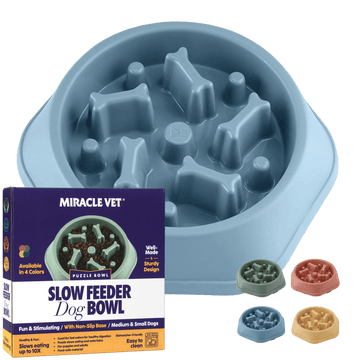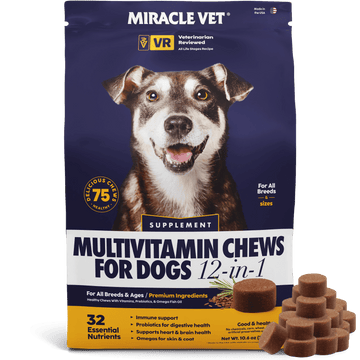
Omega fatty acids are a vital part of your dogs diet. They are polyunsaturated fats that help promote the overall health of your pet. Most notably the skin and coat, internal organs such as the kidneys, and the immune system. Omega 3 fatty acids are usually taken from fish, you may have heard people taking fish oil as a vitamin themselves as well as giving it to their pets, this is an easy way to supplement if you are not getting enough from your daily diet. Whitefish such as cod and tilapia, cold water fish like salmon and sardines, and shellfish are some of the best and most popular omega 3 rich foods. Omega fatty acids are also found in certain vegetables (especially dark, leafy greens) and vegetable oils. Nuts and seeds such as walnuts and flaxseed are also great sources for omega 3.
Omega 6 fatty acid is more commonly found in pork, beef, or chicken, vegetable oil, and dairy. It is also found in fast food items which can lead to too much consumption by us and not always enough for our furry friends. Cheap foods will often have omega 6 but not enough or no omega 3. Having both in your dog’s diet is an important piece of the nutrition puzzle.
What is the Difference in Omega 3 and Omega 6?
It is important to have both omega 3 and omega 6 in your dog’s diet. They are similar in that the two fatty acids have a comparable molecular structure but there are some key differences in the benefits your dog will get. If your dog is only getting omega 6 and no omega 3, it may be possible to have adverse effects on your pet’s health. It is still not known for certain if only consuming omega 6 and no omega 3 is unhealthy as the evidence is more anecdotal than science based. It is recommended to have both as a daily part of any healthy nutrition plan.
What are the benefits of Omega 3 and Omega 6?
As mentioned previously, probably the most obvious benefit you can see with your own eyes is to the skin and coat. Omega 3 in particular will help give your dog’s coat that nice shine. It does this by helping to stimulate skin and hair follicle cell growth, leading to a fuller, thicker coat 1 . Omega 3 has also been shown to reduce inflammation. Reducing inflammation comes with a whole host of benefits, including lowering the risk of heart disease, osteoporosis, diabetes, depression, and rheumatoid arthritis. It does this by lowering the bad cholesterol (LDL) and raising good cholesterol (HDL) 2 .
The benefits of Omega 6 may be just as important as omega 3. One of the most notable benefits is to allergies. If your dog already has a fully developed allergy it may not do much to hinder it but when given to a pregnant mother or puppy, it has been shown to decrease sensitivity to food allergies. Meaning it may not completely remove the allergy but will lessen the extent of it. When taken with omega 3, omega 6 has been shown to reduce inflammation more effectively than omega 3 alone 3 . Studies also confirm that omega 6 has been linked to a lower rate of diabetes.
Omega and mental health Omega fatty acids, omega 3 in particular, have also been linked to improving mental health. From depression to dementia, higher levels of omega 3 will boost mental cognition 4 . Depression in dogs is more common than most people might think. It is easy to not realize when your pet is depressed, it can be cute when you see a dog not wanting to wake up from a nap and not realize something is wrong. Other signs include appetite changes, avoiding humans or other dogs in the home, and having no interest in playtime or other activities. A proper diet that includes omega 3 can help improve all of these symptoms.
It is also important to note that there is no evidence of omega 3 or omega 6 improving the brain function in a healthy, high functioning person or any other animal. Taking fish oil will not change your dog’s personality or turn them into a doggy Einstein but will help stave off and improve depression. It will not just help treat symptoms of depression but higher levels of omega 3 have been shown to actually treat the depression itself and make your dog feel better.
The bottom line
So, should you include omega 3 and omega 6 in your dog’s diet? The evidence certainly seems to show that while it may not be a cure all, omega fatty acids are an important addition to any healthy nutrition plan. It not only benefits the dogs physical health but mental health as well. There have also been no studies showing an adverse effect on any animal increasing their omega 3 intake. The only negative correlation that has ever been linked to omega fatty acids is when only omega 6 is consumed and no omega 3. Because of this it is important to have both in your diet for maximum benefits. There are a couple ways to get omega fatty acids in your dog’s diet. One is through supplementation.
There are many companies who make fish oil tablets you can feed your dog by making them swallow a pill or draining it into their food bowl and hoping they don’t mind the taste. The easier way is to feed them a high quality food that includes omega fatty acids as an ingredient. A food that has whitefish, salmon, or shellfish listed as a top ingredient is the best place to start. Premium dog foods such as Miracle Vet will have the analysis of key nutrients like omega fatty acids listed right on the label.
1.https://www.ncbi.nlm.nih.gov/pubmed/26876681 2.https://www.umm.edu/health/medical/altmed/supplement/omega3-fatty-acids 3.https://www.umm.edu/health/medical/altmed/supplement/omega6-fatty-acids 4.https://www.ncbi.nlm.nih.gov/books/NBK11853/









